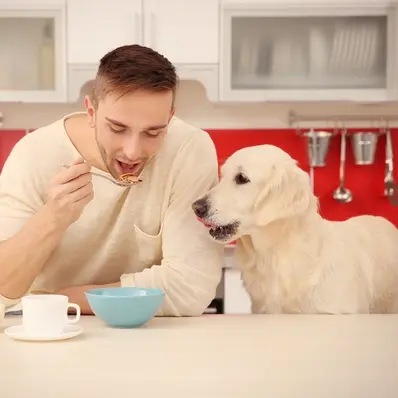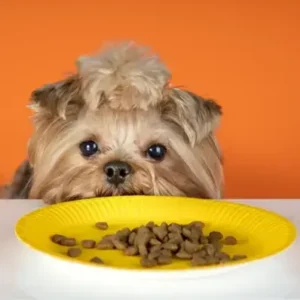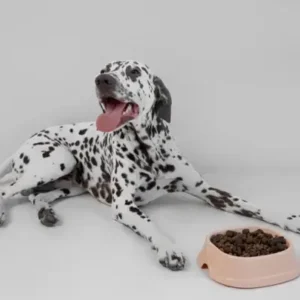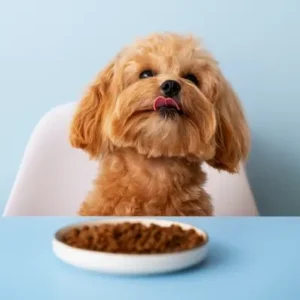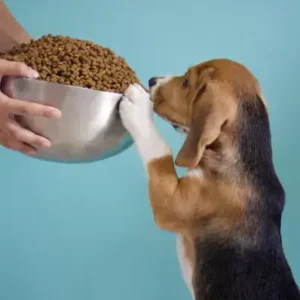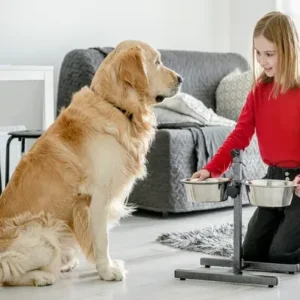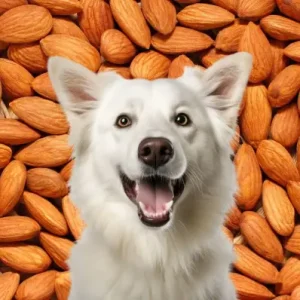Safe and Healthy Human Foods for Dogs
While many human foods can be a healthy addition to your dog’s diet, it’s important to know which ones are safe and beneficial.
Let’s explore more nutritious options that can support the overall health of your dog breed.
Fruits
Fruits are a great source of vitamins, fiber, and antioxidants.
Some safe options include:
- Apples (without seeds) – Rich in fiber and vitamin C.
- Bananas – A great low-calorie treat packed with potassium.
- Blueberries – High in antioxidants and good for brain health.
- Watermelon (seedless) – Hydrating and refreshing in the summer.
- Strawberries – Full of vitamin C and beneficial enzymes.
- Mango (without pit) – Loaded with vitamins A, B6, and C.
Avoid: Grapes, raisins, and cherries – they are toxic to dogs and can cause kidney failure.
Vegetables
Veggies provide fiber, vitamins, and low-calorie snacks for dogs. Some safe options:
- Carrots – Great for dental health and full of beta-carotene.
- Broccoli (in moderation) – A nutrient-dense vegetable with antioxidants.
- Cucumbers – Hydrating and low in calories, they are perfect for overweight dogs.
- Sweet Potatoes – Rich in fiber and vitamin A and easy to digest.
- Green Beans – Low in calories and high in fiber.
- Pumpkin – Great for digestion and helps with diarrhea or constipation.
Avoid: Onions, garlic, and mushrooms – they can be toxic and cause digestive issues.
Proteins
Dogs thrive on protein, and many human protein sources are safe for them:
- Cooked Chicken – Lean and high in protein, perfect for homemade dog meals.
- Cooked Turkey – A good alternative to chicken, just avoid seasoning.
- Lean Beef – Provides essential amino acids and iron.
- Eggs (fully cooked) – A great source of protein and biotin.
- Fish (salmon, sardines – boneless, cooked) – Full of omega-3 fatty acids, great for skin and coat health.
Avoid: Raw meat and fish (risk of bacteria and parasites), processed meats (like bacon or ham – too much salt and fat).
Grains & Carbs
Not all grains are bad for dogs. Some can be beneficial:
- Brown Rice – Easily digestible and good for upset stomachs.
- Oatmeal – A great source of fiber and safe for dogs with wheat allergies.
- Quinoa – A protein-rich grain alternative.
- Whole Wheat Bread (in small amounts) – Safe but not necessary in their diet.
Avoid: White bread, pastries, or anything with added sugar.
Dairy (In Moderation)
Some dairy products are safe for dogs but should be given in small amounts:
- Plain Yogurt – Contains probiotics that support gut health.
- Cottage Cheese – Low in fat and high in protein.
- Cheese (low-lactose options like mozzarella) – Can be a good treat in moderation.
Avoid: Milk and ice cream – Many dogs are lactose intolerant and can experience digestive issues.
Nuts & Seeds(Limited & Carefully)
Some nuts and seeds can be safe, but they must be given in moderation:
- Peanuts (unsalted, not coated) – High in protein and healthy fats.
- Cashews (in moderation) – Contain beneficial minerals.
- Chia Seeds & Flaxseeds – Provide omega-3s and fiber.
Avoid: Macadamia nuts, walnuts, and almonds – they can be toxic and cause digestive problems.
What Human Foods Are Toxic to Dogs?
Some foods are highly dangerous for dogs and should always be avoided:
- Chocolate – Contains theobromine, which is toxic to dogs.
- Grapes & Raisins – Can cause kidney failure.
- Onions & Garlic – Harmful to red blood cells and can lead to anemia.
- Avocado – Contains persin, which is toxic to dogs.
- Xylitol (found in sugar-free foods) – Extremely toxic and can cause liver failure.
- Macadamia Nuts – Can cause weakness, tremors, and vomiting.
- Alcohol & Caffeine – Even small amounts can be lethal.
If your dog accidentally consumes any of these toxic foods, contact your veterinarian or an emergency pet hotline immediately.
Tips for Feeding Dogs Human Food Safely
Before sharing your meal with your pup, it’s important to understand how to feed dogs human food safely.
- Introduce new foods gradually to monitor for allergies or digestive issues.
- Avoid seasoning, salt, and sugar – Keep foods plain and natural.
- Stick to small portions – Even safe foods can be harmful in large amounts.
- Consult your vet before making major changes to your dog’s diet.
Feeding your dog human food can be a healthy addition to their diet when done correctly. Stick to safe, nutritious options like lean meats, fruits, and vegetables, and avoid toxic foods that could harm your furry friend.

